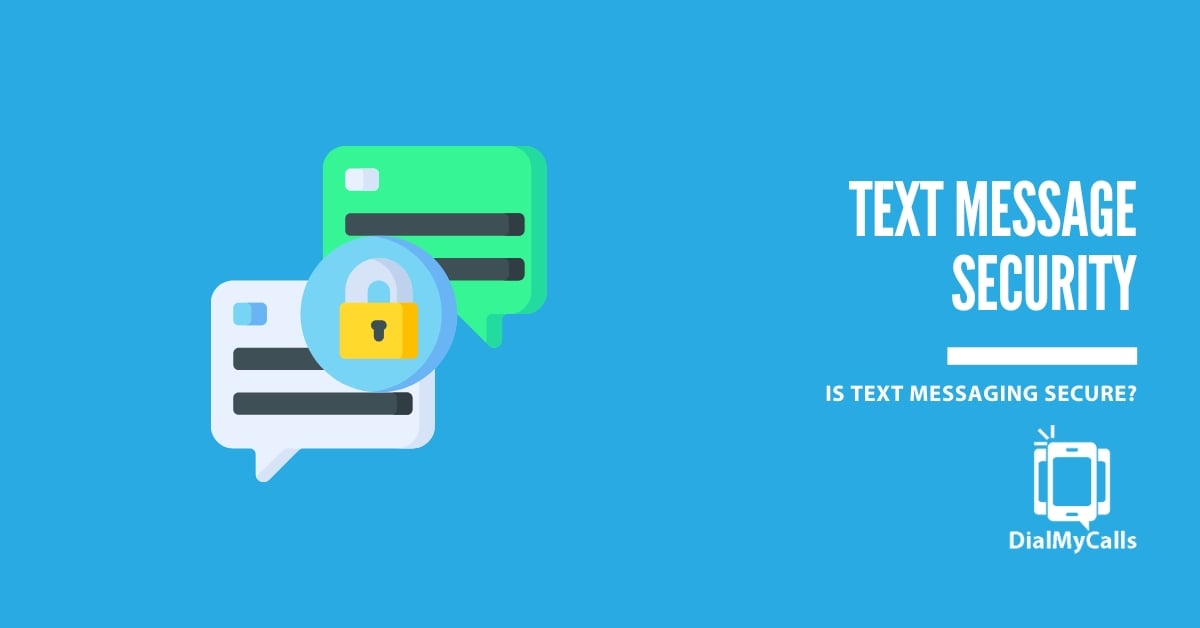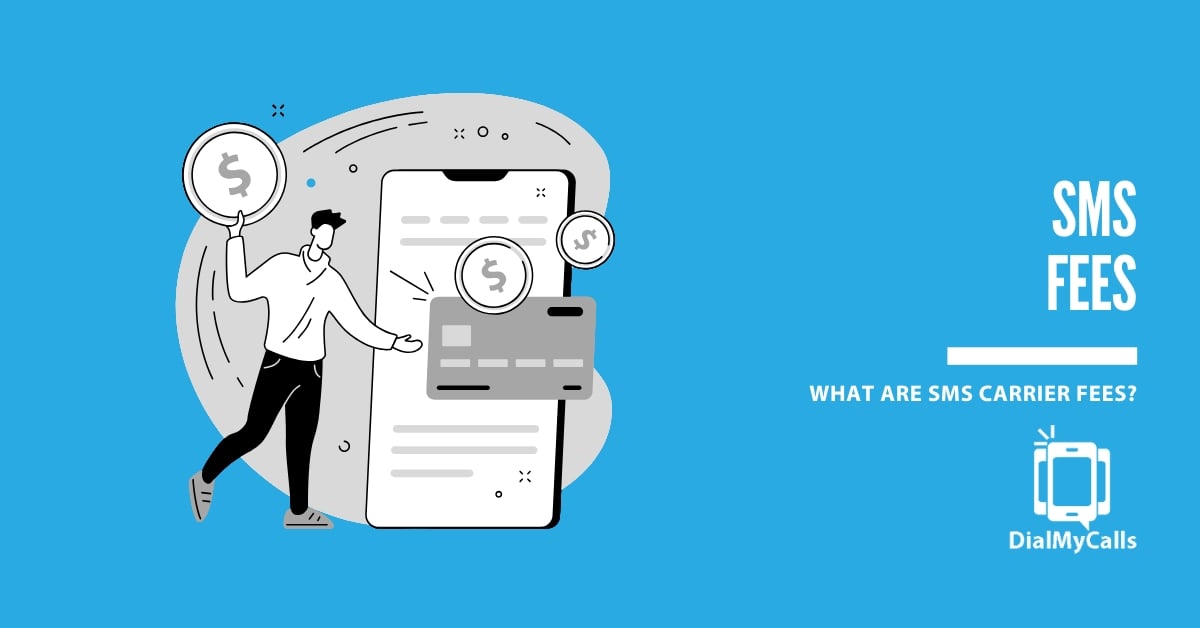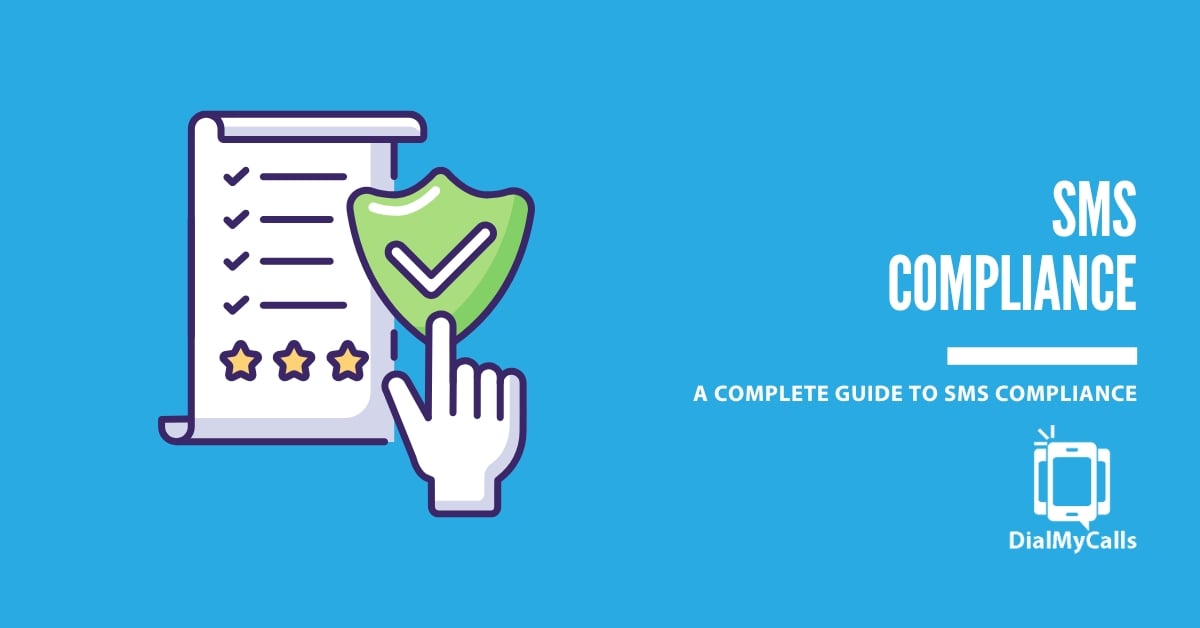Author
Tim Smith is the Media Manager at DialMyCalls, where he has leveraged his expertise in telecommunications, SaaS, SEO optimization, technical writing, and mass communication systems since 2011. Tim is a seasoned professional with over 12 years at DialMyCalls and 15+ years of online writing experience.
Try Using DialMyCalls Right Now
Start For FreeRecent Posts
- SMS Marketing Metrics: How to Measure and Improve Your Text Campaign’s Success
- What are SMS Carrier Fees and How to Lower Your Costs
- 8 Creative SMS Marketing Ideas to Boost Engagement This Summer
- 15 Ways to Use QR Codes For Event Promotion & Attendee Engagement
- Top 6 Automated Calling Service Providers For Your Business
Categories
“I am a youth minister and have spent hours in the past calling students individually to remind them of an upcoming event or to get out an urgent announcement. With DialMyCalls.com, I cut that time down to about 1 minute. I also love how I can see exactly who answered live and how long they listened so I know if they heard the whole message. DialMyCalls.com is the best website I have stumbled upon all year! Thanks!”
Central Baptist Church
Try Using DialMyCalls Right Now
Start For FreeIs Text Messaging Secure? A Deep Dive Into Text Message Security
Posted by Tim Smith in General Post on February 26, 2025

Text messaging has become one of the most widely used communication channels in personal and business settings. It’s a big part of modern communication, helping send customer notifications to deliver two-factor authentication codes. But is text messaging genuinely secure?
With growing concerns over data breaches, phishing attacks, and cyber threats, we’ve become more aware of the security risks of text messaging. Whether you’re an individual user or a business handling sensitive information, knowing the vulnerabilities and solutions can help protect your data.
In this deep dive, we’ll explore text message security, the common risks involved, and the best practices for keeping messages private and protected.
Maximize Outreach, Save Time
Start Transforming Your Communication with Mass Texting
Understanding Text Message Security
- How Traditional SMS Works
- Why SMS Lacks Strong Encryption
- The Risk of Using SMS for Sensitive Data
Text messaging is one of the most widely used communication methods, but not all messages are created equally in terms of security. So you can fully grasp the risks and protections available, we’ll go over how SMS works, why it lacks encryption, and how it compares to more secure messaging alternatives.
How Traditional SMS Works
Traditional SMS (Short Message Service) operates over cellular networks without encryption. When you send a text, the message travels through multiple mobile carriers and network infrastructure before reaching the recipient. Unlike end-to-end encrypted messaging apps, SMS messages can be intercepted at different transmission points.
Why SMS Lacks Strong Encryption
SMS is inherently unencrypted, unlike modern messaging apps such as WhatsApp, Signal, or iMessage, which use end-to-end encryption (E2EE) to secure conversations. This means that messages sent via SMS can be viewed, stored, and even intercepted at multiple points along their journey from sender to recipient.
Here’s why SMS is considered insecure compared to encrypted messaging platforms:
Messages Are Visible to Mobile Carriers
When sending an SMS, the message doesn’t go directly from your phone to the recipient’s. Instead, it travels through cell towers, routing servers, and mobile carriers, all of which have access to the content of the message. Since SMS messages are not encrypted, carriers can read, store, or even provide access to unauthorized parties during a data breach.
In contrast, encrypted messaging apps use end-to-end encryption, meaning only the sender and recipient can read the messages, and even the platform itself can’t access the content.
Hackers Can Intercept Messages
Since SMS messages travel over traditional cellular networks, they can be intercepted using various hacking techniques.
Since SMS messages are not encrypted at any stage of transmission, anyone who gains access to the carrier’s network or exploits vulnerabilities in SS7 can potentially read those private messages.
Messages Stored on Devices Are Easily Accessible
Even after a message has been successfully delivered, it remains unencrypted on both the sender’s and recipient’s phones. This means that:
- If a phone is lost or stolen, anyone with access to the device can read old messages.
- Malicious apps or malware can extract SMS data without the user’s knowledge.
- Without additional security measures (like device encryption or biometric locks), anyone who gains access to a phone can browse through SMS conversations.
This lack of local encryption is a significant security concern for businesses handling confidential SMS information. Unlike WhatsApp or Signal, which offer message encryption even on the device, SMS messages remain stored in plain text and are vulnerable to theft or unauthorized access.
The Risk of Using SMS for Sensitive Data
Because SMS lacks encryption, authentication, and device-level security, it’s not a safe option for sending sensitive business or financial data. Businesses and individuals should avoid using SMS for:
Two-Factor Authentication (2FA)
Use authentication apps like Google Authenticator or Authy instead.
Financial Transactions
Never share credit card details, passwords, or banking information over SMS.
Confidential Business Communications
Use secure, encrypted messaging platforms for internal communications.
While SMS is convenient for non-sensitive notifications, such as appointment reminders or delivery updates, it should never be relied upon for secure communication. Businesses looking for better security should adopt encrypted messaging solutions that protect data from unauthorized access.
Major Security Vulnerabilities in Text Messaging
- SIM Swapping & Account Takeover
- Man-in-the-Middle Attacks
- Phishing (Smishing) Attacks
- Message Spoofing & Fraudulent Communications
- Lack of Data Protection
- Carrier-Level Vulnerabilities
Despite its convenience, SMS lacks built-in security measures, making it vulnerable to various cyber threats. We’ll go over a few of these vulnerabilities so you can better protect your sensitive information.
1. SIM Swapping & Account Takeover
Hackers can trick mobile carriers into transferring a user’s phone number to a new SIM card, allowing them to intercept all incoming text messages, including two-factor authentication (2FA) codes.
2. Man-in-the-Middle Attacks
SMS messages are transmitted in plain text, which means hackers can read messages in transit using cell tower spoofing or interception techniques.
3. Phishing (Smishing) Attacks
Smishing (SMS phishing) is a technique where attackers send fraudulent messages posing as trusted organizations to steal user credentials or financial data.
4. Message Spoofing & Fraudulent Communications
Cybercriminals can impersonate legitimate businesses by sending fake messages that appear to be from a known number, leading to scams or data breaches.
5. Lack of Data Protection
Unlike encrypted messaging apps, SMS messages are stored in plain text on both the sender’s and recipient’s devices, making them accessible to hackers or malicious apps if the device is compromised.
6. Carrier-Level Vulnerabilities
Since SMS relies on telecom providers, any breach in a carrier’s system can expose user messages to unauthorized access.
These security risks make unprotected SMS unsuitable for transmitting highly sensitive data, such as financial information, authentication codes, or personal health details.
Reach Thousands, Instantly
Grow Your Business by Leveraging Mass Texting
How Secure Are Encrypted Messaging Apps Compared to SMS?
Many businesses and individuals are switching to encrypted messaging platforms as an alternative to traditional SMS. Let’s find out why.
What Is End-to-End Encryption?
End-to-end encryption (E2EE) is a security method that ensures that only the sender and the intended recipient can read a message. Even the platform itself can’t access the message content.
Popular encrypted messaging services include:
| Messaging App | Encryption Type | Security Features |
|---|---|---|
| Signal | End-to-End Encryption | Self-destructing messages, Open-source protocol |
| End-to-End Encryption | Two-factor authentication, Encrypted backups | |
| Telegram (Secret Chats) | End-to-End Encryption | Self-destructing messages, Cloud-based storage |
| Apple iMessage | End-to-End Encryption | Secure Face ID & Touch ID integration |
How Encrypted Messaging Differs from SMS:
- E2EE prevents third-party access, unlike SMS, which carriers can intercept.
- Encrypted apps offer better identity verification, making phishing attacks harder to execute.
- Many encrypted apps allow self-destructing messages, reducing long-term exposure risks.
Switching to encrypted communication platforms is often safer than SMS for businesses handling confidential information.
Best Practices for Securing Text Messages
- Use Two-Factor Authentication (2FA) Wisely
- Encrypt Messages When Possible
- Beware of Phishing & Smishing Attacks
- Enable Remote Wipe & Lock Features
- Avoid Sending Sensitive Information Over SMS
- Implement Secure Business Messaging Policies
Even though SMS has security vulnerabilities, businesses and individuals still use it so long as they implement protective measures to minimize risks.
1. Use Two-Factor Authentication (2FA) Wisely
Many online services send 2FA codes via SMS, which can be intercepted. Instead:
- Use authentication apps like Google Authenticator or Authy instead of SMS-based 2FA.
- Enable biometric authentication for additional security.
2. Encrypt Messages When Possible
For sensitive communication, switch to secure messaging apps instead of traditional SMS.
3. Beware of Phishing & Smishing Attacks
- Avoid clicking on unknown SMS links.
- Verify sender information before responding to any request for personal data.
- Educate employees on common SMS fraud tactics to prevent business data breaches.
4. Enable Remote Wipe & Lock Features
If your phone is lost or stolen, use Find My Device (Android) or Find My iPhone (Apple) to wipe messages and secure data remotely.
5. Avoid Sending Sensitive Information Over SMS
Never send passwords, financial details, or sensitive business data via SMS. Instead, use secure business communication tools with built-in encryption.
6. Implement Secure Business Messaging Policies
If your organization relies on SMS for notifications:
- Limit message content to general alerts without sensitive details.
- Authenticate outgoing messages to prevent fraud.
- Regularly audit SMS communication protocols to stay compliant with security best practices.
When Is SMS Still a Viable Communication Method?
Despite its security vulnerabilities, SMS remains one of the most widely used and accessible business communication channels. While it may not be suitable for transmitting sensitive information, it is still highly effective for general notifications, marketing campaigns, and emergency alerts.
When used with privacy and compliance in mind, SMS offers high open rates, instant delivery, and broad audience reach, making it an essential tool for various business operations.
✅ When to Use SMS Safely in Business Communications
General Notifications (Appointment Reminders, Delivery Updates)
SMS is ideal for routine notifications where security concerns are minimal. Businesses across various industries, such as healthcare, retail, and logistics, use SMS to provide quick, automated updates to customers.
- Healthcare: Clinics and hospitals send SMS reminders for upcoming doctor appointments, prescription refills, or vaccination schedules.
- Retail & E-commerce: Businesses notify customers about order confirmations, shipping status updates, and expected delivery times.
- Service-Based Businesses: SMS is commonly used to remind customers about salon appointments, car service bookings, or property viewings.
Since these messages do not contain sensitive personal data, they are safe to send via SMS.
Marketing Campaigns (Limited-Time Promotions, Non-Sensitive Customer Engagement)
SMS marketing has a higher engagement rate compared to email and social media. Businesses can use SMS to send:
- Exclusive discount codes for flash sales
- Loyalty program updates and point balance notifications
- New product launches and seasonal offers
- Event reminders for webinars, grand openings, or promotions
Since marketing messages don’t require encryption, SMS is a cost-effective way to reach customers instantly. But before sending promotional texts, businesses should make sure they’re compliant with regulations like TCPA and GDPR by obtaining opt-in consent.
Emergency Alerts (Time-Sensitive Announcements for Employees and Customers)
SMS is one of the most reliable ways to communicate during emergencies due to its instant reach and high open rates. Businesses, schools, and government agencies rely on SMS for:
- Weather-related alerts (hurricanes, wildfires, or severe storms)
- Office closures or service disruptions due to unforeseen events
- Security threats or evacuation notices
- IT system outages and scheduled maintenance updates
When SMS Should NOT Be Used for Business Communication
While SMS is adequate for general engagement, it’s unsuitable for transmitting highly sensitive or confidential information due to its lack of encryption and vulnerability to cyber threats.
Financial Transactions or Payment Details
Never use SMS to send or receive credit card details, bank account numbers, or payment confirmations. Since SMS messages can be intercepted, financial data shared via text is at risk of being stolen or exploited by cybercriminals.
✅ Best Alternative: Use secure online payment gateways and encrypted platforms for processing financial transactions.
Sharing Passwords, Authentication Credentials, or PINs
Many businesses still use SMS for two-factor authentication (2FA), but SMS-based authentication is vulnerable to SIM-swapping attacks and phishing attempts. Hackers can intercept authentication codes and gain unauthorized access to sensitive accounts.
✅ Best Alternative: Use authentication apps like Google Authenticator or Authy, which provide one-time passcodes without relying on SMS.
Discussing Confidential or Proprietary Business Information
Companies should avoid using SMS for internal discussions, business contracts, or sensitive negotiations. Since SMS messages are stored in plain text, they can be accessed if a phone is lost, stolen, or hacked.
✅ Best Alternative: For discussing sensitive company matters, use encrypted business communication platforms such as Signal, Microsoft Teams, or Slack.
The Future of Text Message Security
As cyber threats evolve, the telecom industry is developing new technologies to enhance text message security. Advancements in encryption, artificial intelligence, and even quantum cryptography are shaping the next generation of secure messaging solutions.
Evolving Encryption Standards
While traditional SMS lacks encryption, mobile carriers, and industry regulators are exploring ways to enhance security protocols. Rich Communication Services (RCS), the successor to SMS, already offers improved encryption for Android users, and as adoption grows, we may see broader industry-wide encryption standards that better protect message content from interception.
AI & Machine Learning for Threat Detection
Artificial intelligence and machine learning are increasingly used to detect and prevent SMS-based threats. Many mobile providers and messaging platforms now employ AI-driven spam filters to block phishing (smishing) attempts and fraudulent messages before they reach recipients. As AI continues to improve, we can expect more sophisticated fraud detection and real-time response capabilities to make SMS safer.
Quantum Cryptography: Future-Proofing Messaging Security
One of the most promising advancements in cybersecurity is quantum cryptography, which could revolutionize message encryption. Unlike traditional encryption methods that can be broken over time, quantum encryption leverages the principles of quantum mechanics to create messages that are theoretically impossible to intercept without detection.
While still in its early stages, quantum-secure messaging could become a reality in the coming years, ensuring unbreakable security for text communications.
As these advancements continue to develop, businesses and individuals should stay informed and adopt modern security practices to protect their text-based communications from evolving cyber threats.
Final Thoughts: How Secure Is Your Text Messaging?
While SMS is convenient and widely used, it lacks the security features necessary for transmitting sensitive information. Due to threats such as phishing, SIM swapping, and message interception, businesses and individuals must take extra precautions to secure their communications.
To enhance security:
✅ Use encrypted messaging apps for private conversations.
✅ Implement multi-factor authentication (MFA) instead of SMS-based 2FA.
✅ Educate employees on SMS security risks and phishing scams.
For businesses that rely on SMS for customer communication, DialMyCalls provides messaging solutions that help keep communication efficient and compliant, all while reducing security risks.
Want to improve your business’s messaging security? Learn more about secure messaging solutions today.
Mass Texting, Made Easy
Send Bulk Text Message Campaigns in Seconds






